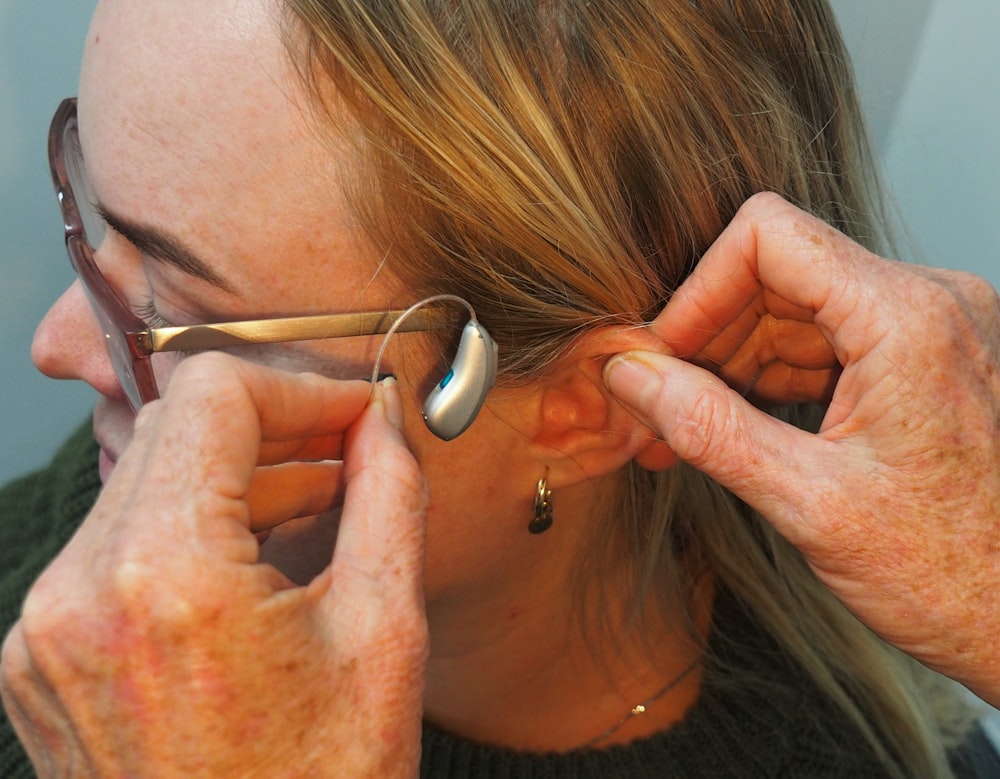目次
補聴器の使用が認知症予防に有効?
高齢者のリハビリテーションに携わる上で問題になることが多いのが難聴です.
難聴によってなかなかこちらの意図を伝えるのが難しいことは多いと思います.
また難聴によって認知症が進行するなんて話もあります.
今回は補聴器の使用が認知症予防に有効である可能性を示唆する論文をご紹介させていただきます.

今回ご紹介する論文
Age Ageing. 2022 Dec 5;51(12):afac266. doi: 10.1093/ageing/afac266.
Dementia and hearing-aid use: a two-way street
Graham Naylor 1, Lauren Dillard 2 3, Martin Orrell 1, Blossom C M Stephan 1, Oliver Zobay 1 3, Gabrielle H Saunders 3 4
Affiliations expand
PMID: 36571777 PMCID: PMC9792081 DOI: 10.1093/ageing/afac266
今回ご紹介する論文は2022年に掲載された論文です.
研究の目的
Objectives: Hearing-aid use may reduce risk of dementia, but cognitive impairment makes use more challenging. An observed association between reduced hearing-aid use and incident dementia could reflect either or both of these causal paths. The objective was to examine the effects of each path while minimising contamination between paths.
補聴器の使用は認知症のリスクを低減させる可能性がありますが,認知機能障害により使用はより困難となります.
補聴器使用の減少と認知症発症の間に観察される関連は,これらの因果関係のどちらか,あるいは両方を反映している可能性があります.
この研究では交絡を最小限に抑えながら,補聴器使用が認知症発症に及ぼす影響を明らかにすることを目的としております.
研究の方法
Methods: Health records data from 380,794 Veterans who obtained hearing aids from the US Veterans Affairs healthcare system were analysed. Analysis 1 (n = 72,180) used multivariable logistic regression to model the likelihood of incident dementia 3.5-5 years post hearing-aid fitting for patients free of dementia and mild cognitive impairment (MCI). Analysis 2 (n = 272,748) modelled the likelihood of being a persistent hearing-aid user at 3 years 2 months after fitting, contrasting subgroups by level of cognitive function at the time of fitting. Analysis time windows were optimized relative to dataset constraints. Models were controlled for available relevant predictors.
米国退役軍人医療制度で補聴器を購入した退役軍人380,794例の健康記録データを分析しております.
解析1(n = 72,180)では,多変量ロジスティック回帰を用いて認知症および軽度認知障害(MCI)のない症例について,補聴器装着後3.5~5年の認知症発症の可能性をモデル化しております.
解析2(n = 272,748)は,装着後3年2ヶ月の時点で補聴器ユーザーが継続する可能性をモデル化し,装着時の認知機能レベルによってサブグループを対比させております.
解析の時間窓はデータセットの制約に関連して最適化されております.
モデルは利用可能な関連予測因子で制御しております.
研究の結果
Results: The adjusted OR for incident dementia was 0.73 (95% CI 0.66-0.81) for persistent (versus non-persistent) hearing-aid users. The adjusted OR for hearing-aid use persistence was 0.46 (95% CI 0.43-0.48) in those with pre-existing dementia (versus those remaining free of MCI and dementia).
認知症発症の調整済みORは,補聴器持続使用者(非持続使用者)に対して0.73(95%CI 0.66-0.81)でありました.
補聴器使用継続の調整済みORは,認知症の既往がある人(MCIや認知症のない人)において0.46(95%CI 0.43-0.48)でありました.
研究の結論
Conclusion: Substantial independent associations are observed in both directions, suggesting that hearing-aid use decreases risk of dementia and that better cognitive function predisposes towards persistent use. Research studying protective effects of hearing-aid use against dementia needs to account for cognitive status. Clinically, hearing devices and hearing care processes must be accessible and usable for all, regardless of their cognitive status.
補聴器の使用は認知症リスクを減少させ,認知機能の向上は補聴器使用の継続を促すことが示唆されました.
補聴器使用の認知症予防効果に関する研究では,認知機能の状態を考慮する必要があります.
臨床的には補聴器や聴覚ケアのプロセスは,認知状態にかかわらず,すべての人が利用しやすく使いやすいものでなければなりません.
今回は補聴器の使用が認知症予防に有効である可能性を示唆する論文をご紹介させていただきました.
今回の結果から考えると補聴器使用は認知症予防に有効だと考えられますね.






